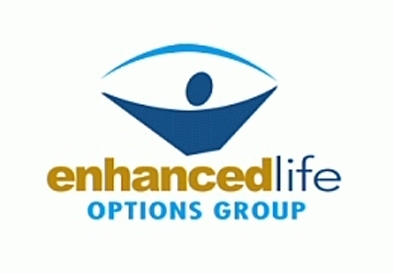Frequently Asked Questions
What is a Special Needs Trust?
A Special Needs Trust is a legal document which benefits an individual who has a disability as defined by the Social Security Administration and Medicaid, by allowing assets to be held solely for their benefit. By law, a Special Needs Trust is not considered a countable asset for the qualification for certain governmental benefits under Supplemental Security Income (SSI) or Medicaid. The trust provides for care beyond but not overlapping, what the government provides. This allows resources to be used effectively over time to supplement the essential government programs which do have gaps.
What is the Third-Party Special Needs Trust?
A third-party trust is a general term for a special needs trust that a parent, family member or others (called a “third-party”) funds for the benefit of an individual with a disability. All assets intended for the Beneficiary must be third-party assets belonging to the family member, or friend. None of the assets in a third-party Special Needs Trust belong to the Beneficiary.
What is the Self-Funded Special Needs Trust?
A Self-Funded Special Needs Trust allows people with disabilities to place their own money into a Special Needs Trust and still be eligible for certain benefits under SSI and Medicaid programs. These self-funded Special Needs Trusts only hold assets that belonged to the beneficiary with disabilities before the funds are placed into the trust.
What is a Pooled Special Needs Trust?
A Pooled Special Needs Trust is set up and managed by a nonprofit organization such as Enhanced Life Options Group, as provided for in federal special needs trust law.
Can the person with disabilities serve as trustee? No.
The premise of a special needs trust is that the disabled beneficiary does not have control or signature authority over the trust funds. The assets of the trust are for the sole benefit of the disabled person, but the disabled person while living can have no power or authority to direct the payment of funds and still receive Medicaid or SSI. If the person with disabilities were named as the trustee, then the trust funds are considered available resources that must be spent down before Medicaid and SSI can be provided.
Can someone be named in the Trust to oversee the trustee? Yes.
A family member such as a sibling or another person or organization, named by the parents or whoever establishes the trust, can be given veto power over the trustee while the trustee is responsible for the day-to-day operation of the trust. This type of provision is called a special power of appointment or trust protector.
Why do I need Enhanced Life Options?
Long term future planning for a loved one with a disability can be a challenging time because it impacts the future well-being of that loved one. Our desire is to empower individuals and their families by serving as guide and advocate with sensitivity and skill. Navigating the ever-changing landscape of Social Security and Medicaid rules, regulations and rulings is challenging too. However, it is our belief that future planning helps pave the way to a more secure future for an individual. We are passionate about preserving the independence and well-being of individuals living with disabilities and enhancing their lives.
What kinds of assets can be placed in a Special Needs Trust?
Virtually any kind of asset may be held by the trust such as cash, personal property or real estate, an inheritance, law suit settlement, or the proceeds of a life insurance policy to name a few. Since no minimum nor maximum amount of monies need to be placed into an account to open, at times a trust is left empty (other than a nominal sum such as $10.00) until the death of the parent or other person who establishes the trust. The disabilities trust in that case is an empty shell waiting for the time when future assets go into the Trust. Additional property may be added to the Trust at any time, by the person who established it or other people including relatives and friends. Additions may be made by gifts during life, by wills or trusts, life insurance policies, employee plan benefits, or retirement plan benefits.
What can a Special Needs Trust be used for?
The trust provides for care above and beyond what SSI and Medicaid cover, to fill in the gaps. This helps a person with disabilities to live life in decency and health.
A Beneficiary’s Distribution Plan may include some of the following allowable distributions:
To pay for health and dental services, treatments and equipment, including eye glasses;
To pay for rehabilitative and occupational therapy services or medical procedures;
To pay for medical insurance premiums and supplemental nursing care;
To pay for services rendered to the Beneficiary by therapists, teachers, tutors and other professional persons, not otherwise provided;
To pay reasonable travel and related expenses enabling the Beneficiary to participate in educational, medical, physical fitness and work activities;
To pay for programs of training and education, as well as reading and educational materials, and to pay for cultural experiences;
To pay reasonable travel and related expenses enabling the Beneficiary to maintain relationships with family and friends;
To pay for tutoring and companionship services, vocational and avocational interests, and to provide for the Beneficiary's pets (including expenses associated with pet ownership including veterinary care and general pet care), and social integration activities, considering Beneficiary's disabilities;
To pay for household goods;
To purchase, adapt and repair communications equipment, including phones, computers, televisions, radios, stereos or other electronic equipment;
To purchase a home and pay property taxes and related charges, repair, furnish, equip and adapt the home;
To purchase a vehicle and pay taxes, fees and related charges, adapt, equip and repair means of transportation for the Beneficiary;
To provide supported employment, considering the Beneficiary's disabilities, if not otherwise funded;
To pay for any other items or services as identified on the Beneficiary’s Distribution Plan; and
To pay for or provide items or benefits not furnished or paid for by any governmental agency; and
To purchase final arrangements.
What individual trust management services does Enhanced Life Options provide?
We work with the client and others involved including financial advisors to establish appropriate objectives.
We have follow up meetings with the client and others involved, to stay current with the trajectory of life.
We make purchases and disbursements.
We maintain tax records (original costs and acquisition dates).
What does it cost to open a trust?
Before opening up a trust, we provide consultations for those wanting to learn more, free of cost. After deciding that a special needs trust is the right choice for an individual, a one-time enrollment fee of $750 is payable to Enhanced Life Options at the submission of the trust application form.
What other education and consulting does Enhanced Life Options provide?
We advocate for children and adults of special needs by arranging for an individual's evaluation which can determine the scope of services and where the priorities are. Not only do evaluations build a clear picture of what future services may be needed but they begin to connect the entire support team of family and friends, educators, and other providers.
Beginning with an assessment of an individual, we provide guardianship counseling. As this is another difficult topic, the conversation is made easier with a friendly knowledgeable person to objectively look at the scope of guardianship before applying for it. In some cases a less restrictive alternative such as powers of attorney may be appropriate.
While special needs trusts are a key part of long term planning for a family with a disabled family member, they may accompany various other companion documents and strategies such as powers of attorney, guardianship, representative payee arrangements, ABLE Act accounts, individual service plans, and various estate planning documents for parents in the future when they will no longer be able to care for their child.



